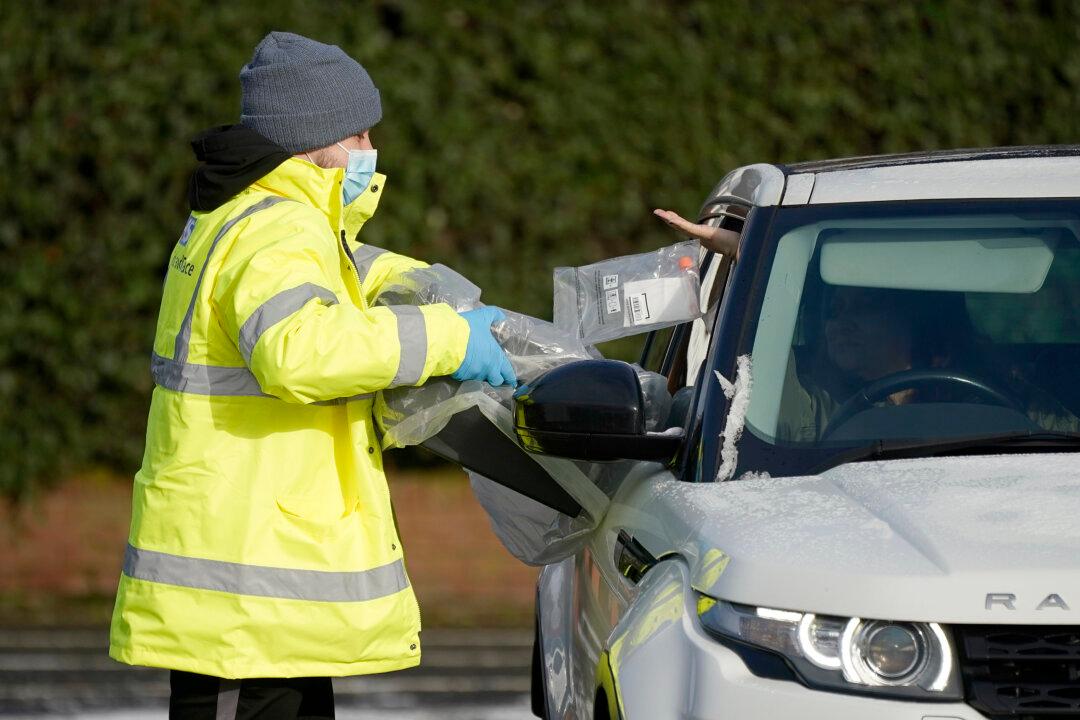The number of people getting infected with the CCP virus has continued to decrease across the UK, newly released data shows.
According to figures released on Friday by the Office for National Statistics, approximately 1 in 220 people in England were infected with the virus in the week ending Feb. 27.





